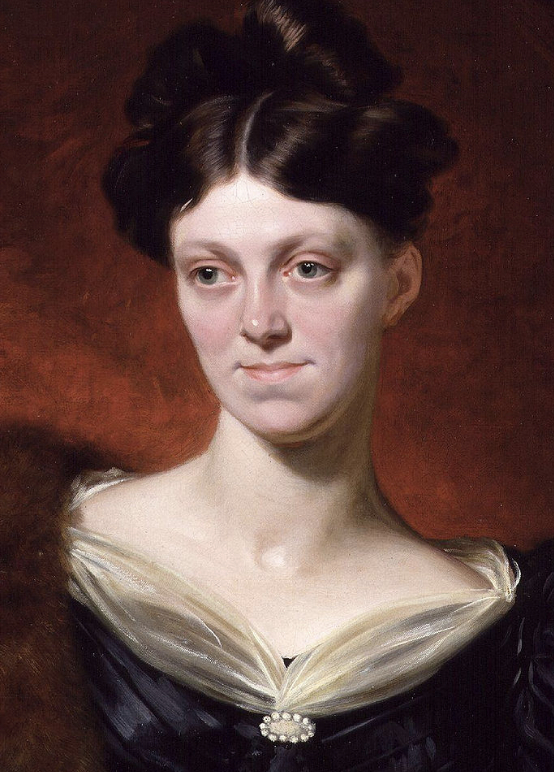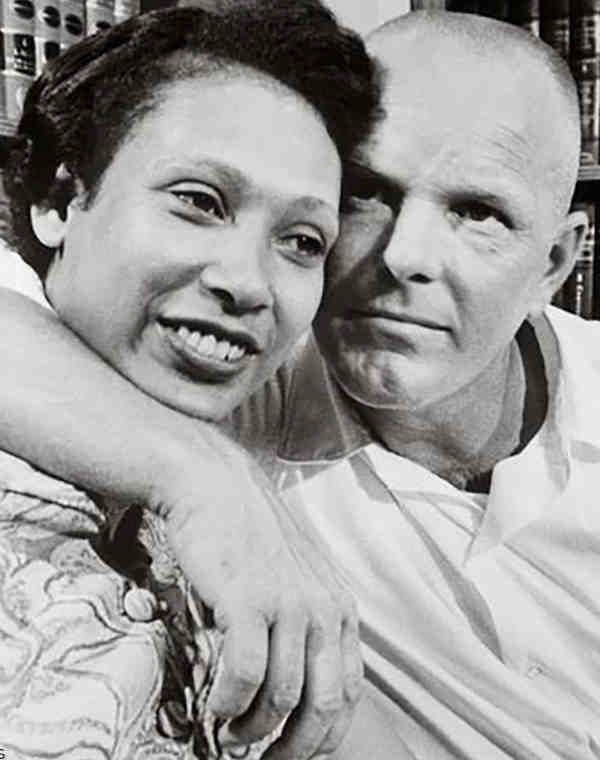June 12
Harriet Martineau

On this date in 1802, Harriet Martineau was born in Norwich, England. The sixth of eight children of a textile manufacturer, she recoiled from her family’s Christian brand of Unitarianism, such as chapel admonitions for children and servants to obey their masters. She went through a devout teenage phase, but as an adult she wrote of Unitarianism: “I disclaim their theology in toto.” Martineau began losing her senses of taste and smell at a young age, becoming increasingly deaf. She turned to writing to help out her family and by 1830 had gained some renown. She blazed a path for women by supporting herself with her nonfiction, writing 50 books and more than 1,600 articles, signed in her own name.
In her memoirs, she boasted of being “probably the happiest single woman in England.” (She never married.) Her two-volume Society in America, as acclaimed as de Tocqueville’s look at life in America, was a definitive work on the status of American women, whom she found unhealthily obsessed with religion. Because of her scrupulous methods of observation, she is credited by some with being the “first sociologist.” Still anthologized is her essay “The Hour and the Man,” a tribute to Haitian slave liberator Toussaint L’Ouverture. After visiting the Mideast with friends, Martineau wrote an examination of the genealogy of Egyptian, Hebrew, Christian and Islamic faiths, Eastern Life: Past and Present (1848). Critics pounced on the “mocking spirit of infidelity.”
Her 1851 book, On the Laws of Man’s Nature and Development, featuring published letters between herself and H.G. Atkinson, made clear her freethought views (see quote below). Wanting to offer children an alternative to “pernicious superstition,” she wrote Household Education (1848) as a secular guide to parents. She translated and condensed the six volumes of French atheist and philosopher Auguste Comte into two volumes, with his approval, in 1853. An erroneous prognosis by a doctor telling her she had fatal heart disease in 1855 propelled her to write her autobiography. She recorded that believers, hearing of her (misdiagnosed) illness, swamped her with self-righteous religious propaganda, such as the New Testament (“as if I had never seen one before”).
When Martineau died in 1876 at age 74, Florence Nightingale wrote that she “was born to be a destroyer of slavery, in whatever form, in whatever place, all over the world, wherever she saw or thought she saw it.”
PHOTO: Martineau, c. 1834, cropped from an oil painting by Richard Evans.
"There is no theory of a God, of an author of Nature, of an origin of the Universe, which is not utterly repugnant to my faculties."
— Harriet Martineau, "On the Laws of Man's Nature and Development" (1851)
Loving v. Virginia Decided

On this date in 1967, Loving v. Virginia was decided by the U.S. Supreme Court, which ruled unanimously that Virginia’s statute barring interracial couples from marrying or living together as husband and wife violated the 14th
Amendment.
Mildred and Richard Loving, of mixed race and white heritage respectively, were arrested in the middle of the night in their home several weeks after being married in 1958 in Washington, D.C. When Richard Loving pointed to their framed marriage certificate, Sheriff Garnett Brooks reportedly said, “That ain’t no good here” and took them to jail.
They were charged with a felony under a section of the state code prohibiting interracial couples from being married out of state and then returning to Virginia and pleaded guilty to “cohabiting as man and wife, against the peace and dignity of the Commonwealth.” They were sentenced to one year in prison, with the sentence suspended on condition that they leave Virginia and not return together for at least 25 years. They moved to the District of Columbia.
County Judge Leon Bazile in his decision wrote: “Almighty God created the races white, black, yellow, malay and red, and he placed them on separate continents. And but for the interference with his arrangement there would be no cause for such marriages. The fact that he separated the races shows that he did not intend for the races to mix.”
After the American Civil Liberties Union took the Lovings’ case, it wound its way through the legal process before landing in the U.S. Supreme Court. By then they had two sons, Sidney and Donald, and a daughter, Peggy. Richard Loving, seven years older than Mildred, was killed by a drunk driver in 1975 at age 41 in an accident in which she was injured but recovered. She never remarried and died in 2008 at age 68.
In Obergefell v. Hodges (2015), the Supreme Court invoked Loving, among other cases, as precedent for its holding that states are required to allow same-sex marriages under both the Equal Protection Clause and the Due Process Clause of the Constitution. The court’s decision in Obergefell cited Loving nearly a dozen times.
PHOTO: Mildred and Richard Loving
"Under our Constitution, the freedom to marry, or not marry, a person of another race resides with the individual, and cannot be infringed by the state."
— Chief Justice Earl Warren, U.S. Supreme Court opinion (June 12, 1967)
